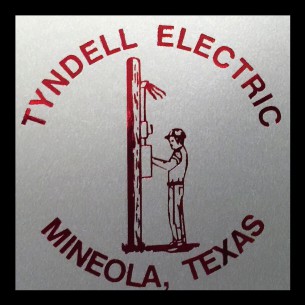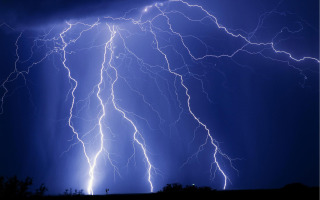GOOD TO KNOW
VOLTAGE RECORDING:
By attaching a Fluke Power recording device to your power source we are able to determine if you are experiencing power spikes and dips. This device may also be used to help your home's electrical system run more efficiently.
DON'T MISS OUT ON REBATES!!!
Your local electric company offers many rebates. If you are building a new home, updating your exisisting windows and appliances there are rebates available to you! Copy and Paste the links below and find out if you qualify!
Wood County Electric Customers:
Swepco Customers:
LIGHTNING 101
LIGHTNING: The occurrence of a natural electrical discharge of very short duration and high voltage between a cloud and the ground or within a cloud, accompanied by a bright flash and typically thunder.
HOW DOES LIGHTNING FORM:
Lightning is an electric current, first you need a cloud.
When the ground is hot, it heats the air above it. This warm air rises. As the air rises, water vapor cools and forms a cloud when air continues to rise. The cloud gets bigger and bigger. In the tops of the clouds, temperature is below freezing and the water vapor turns into ice.
Now, the cloud becomes a thundercloud. Lots of small bits of ice bump into each other as they move around. All these collisions cause a build up of electrical charge.
Eventually, the whole cloud fills up with electrical charges. Lighter, positively charged particles form at the top of the cloud. Heavier, negatively charged particles sink to the bottom of the cloud.
When the positive and negative charges grow large enough, a giant spark -lightning- occurs between the two charges within the cloud. This is like a static electricity sparks you see, but much bigger.
Most lightning happens inside a cloud, but sometimes it happens between the cloud and the ground.
A build up of positive charge builds up on the ground beneath the cloud, attracted to the negative charge in the bottom of the cloud. The ground's positive charge concentrates around anything that sticks up - trees, lightning conductors, even people! The positive charges from the ground connects with the negative charge from the clouds and a spark of lightning strikes. (Source: plante-science.com)
DID YOU KNOW?!?
LIGHTNING IS AROUND 27,000 DEGREES CELSIUS, THAT IS 6 TIMES HOTTER THAN THE SURFACE OF THE SUN!
LIGHTNING MYTHS: Surge protectors and UPS (uninterruptable power supply) devices provide total lightning protection. FALSE
Unfortunately the truth is that a common surge protector will stop voltage spikes and surges, but not the violent, catastrophic burst of current from a close lightning strike.
Direct lightning current is simply too big to protect with a little electronic device inside a power strip, or even a hefty UPS unit. If your UPS or surge protector is in the way of the lightning's path, all or part of the lightning will just flash over or through the device - regardless of the amount of capacitors and battery banks involved.
All this doesn't mean that you shouldn't use a surge protector, UPS, disconnect, or a full-fledged lightning protection system. Any device will provide some degree of protection from everyday power line spikes and distant lightning strikes.
The best, and cheapest way to protet your television, computer, or any electronic appliance is to unplug all power, modem, and atenna connections during a thunderstorm.
Some could argue that the risk of a direct strike to any given house is too low to justify unplugging everything for every storm that passes overhead. There is some truth to that. It's wise then to make sure your homeowner's or renter's insurance covers lightning damage, and all of your devices are inventoried and covered by the policy. Insured expensive electronics can be replaced, after all. However, consider irreplaceables such as the data saved on your computer (photos, video, important files, ect.). You can mitigate that risk by performing frequent offsite backups and/or storing data on an external hard drive that you can unplug when needed.
(source - stormhighway.com)


